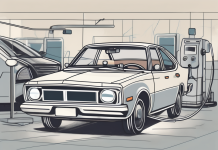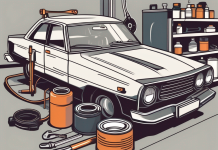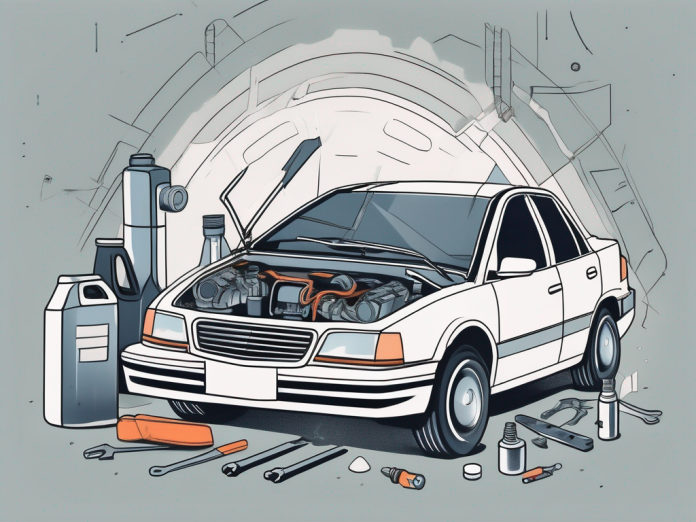If you own a high-mileage vehicle, you know it requires special attention to keep it running smoothly for years to come. Regular maintenance is crucial in order to minimize unexpected breakdowns and extend the lifespan of your vehicle. In this article, we will explore the ins and outs of routine maintenance for high-mileage vehicles, covering everything from understanding what qualifies as a high-mileage vehicle to in-depth maintenance procedures. So, let’s dive in and discover the key steps to keep your high-mileage vehicle in top shape.
Understanding High-Mileage Vehicles
Before we delve into the maintenance aspects, let’s first clarify what qualifies as a high-mileage vehicle. Generally, a high-mileage vehicle is one that has accumulated over 100,000 miles on its odometer. However, the definition may vary depending on the make and model of your vehicle. It’s important to note that high-mileage vehicles tend to experience more wear and tear due to the increased usage, so they require special care and attention.
What Qualifies as a High-Mileage Vehicle?
As mentioned earlier, a high-mileage vehicle typically has over 100,000 miles on the odometer. However, this number may differ from car to car. Some vehicles, especially those built with durable components and proper maintenance, can easily surpass 200,000 miles or more. Therefore, it’s crucial to consult your vehicle’s manufacturer guidelines to determine the specific threshold for your make and model.
Common Issues in High-Mileage Vehicles
High-mileage vehicles often face certain common issues that can impact their performance and reliability. These issues include engine wear, transmission problems, worn-out suspension components, and electrical system issues. By understanding these common problems, you’ll be better prepared to tackle them proactively and prevent them from escalating into more significant and costly repairs.
Importance of Regular Maintenance
Regular maintenance is the cornerstone for keeping any vehicle, especially high-mileage ones, in peak condition. By adhering to a comprehensive maintenance routine, you can extend your vehicle’s lifespan while also preventing unexpected breakdowns that can leave you stranded on the side of the road. Let’s explore two key benefits of regular maintenance for high-mileage vehicles.
Extending Vehicle Lifespan
One of the primary goals of routine maintenance is to extend the lifespan of your high-mileage vehicle. By addressing minor issues promptly and performing essential maintenance tasks, such as fluid changes and filter replacements, you can prevent premature wear and tear on important components. This helps ensure that your vehicle continues to serve you reliably for many more miles.
Preventing Unexpected Breakdowns
As a high-mileage vehicle ages, the risk of unexpected breakdowns increases. Regular maintenance plays a crucial role in minimizing these risks by identifying potential problems before they turn into major issues. By keeping tabs on your vehicle’s vital systems, such as the engine, transmission, and brakes, and performing necessary inspections and repairs, you can avoid being caught off guard by an unforeseen breakdown.
Essential Routine Checks for High-Mileage Vehicles
Now that we understand the importance of regular maintenance, let’s take a closer look at some of the essential routine checks that every high-mileage vehicle owner should perform. By incorporating these checks into your maintenance routine, you can keep your vehicle in optimal condition and prevent minor issues from escalating into major headaches.
Oil and Fluid Checks
Regular oil changes are vital for high-mileage vehicles as they help maintain engine lubrication and prevent excessive wear. Additionally, checking other fluids such as coolant, transmission fluid, and brake fluid regularly is crucial to ensure these systems operate smoothly. Low or contaminated fluids can lead to overheating, poor shifting, and brake failure, so it’s important to address any issues promptly.
Tire Inspection and Rotation
Tires are the only point of contact between your vehicle and the road, making them critical for safety and performance. Regular tire inspections to ensure proper tread depth and inflation, as well as regular rotations, can promote even tire wear and extend their lifespan. By keeping your tires in optimal condition, you’ll enjoy better fuel efficiency, improved handling, and reduced risk of blowouts or flats.
Brake System Assessment
A properly functioning brake system is essential for your safety on the road. Regularly inspecting and assessing your brake system helps identify signs of wear, such as thinning brake pads or warped rotors. Prompt replacement not only ensures reliable stopping power but also prevents more expensive repairs down the line. Remember, neglecting your brakes can compromise your safety and that of other road users.
In-Depth Maintenance Procedures
While routine checks are essential, high-mileage vehicles also benefit from more in-depth maintenance procedures. These procedures address specific systems and components that are prone to wear and require periodic attention. Let’s explore some of these procedures that can keep your high-mileage vehicle running smoothly for miles to come.
Engine Tune-Up
An engine tune-up involves inspecting and replacing components that can affect your vehicle’s performance, such as spark plugs, filters, and ignition coils. A properly tuned engine ensures optimal combustion, fuel efficiency, and power delivery. Regular tune-ups can help identify and address minor issues before they impact engine performance, ultimately saving you money on costly repairs.
Transmission Service
The transmission is a critical component that ensures smooth gear shifting and power transfer. Regular transmission service, including fluid changes and filter replacements, can prevent transmission slippage, erratic shifting, and other common issues that come with high-mileage wear and tear. Neglecting transmission maintenance can lead to costly repairs or even complete transmission failure.
Cooling System Maintenance
The cooling system is responsible for preventing your engine from overheating. Over time, coolant can become contaminated or lose its effectiveness, putting your engine at risk. Routine cooling system maintenance, such as coolant flushes and radiator inspections, helps ensure proper cooling and prevent overheating. By addressing cooling system issues promptly, you can avoid costly engine damage.
When to Seek Professional Help
While regular maintenance tasks can be performed by most vehicle owners, there are times when seeking professional help is necessary. Professional mechanics have the expertise and specialized equipment to diagnose and address complex issues that may arise in high-mileage vehicles. Let’s explore some situations where it’s best to leave the maintenance to the professionals.
Signs of Major Mechanical Issues
If you notice warning signs of major mechanical issues, such as knocking sounds, excessive smoke, or significant loss of power, it’s crucial to seek professional help. These signs may indicate more serious problems that require specialized diagnostic tools and professional knowledge to address properly. Ignoring these signs could result in severe damage to your vehicle or even compromise your safety on the road.
Finding a Trustworthy Mechanic
When it comes to high-mileage vehicles, finding a trustworthy and experienced mechanic is key. Look for recommendations from friends, family, or online reviews to find a mechanic with a proven track record of handling high-mileage vehicles. A knowledgeable mechanic who understands the specific needs of your vehicle can provide the quality service and peace of mind you deserve.
In conclusion, routine maintenance is essential for keeping high-mileage vehicles running smoothly. By understanding what qualifies as a high-mileage vehicle, common issues, and the importance of regular maintenance, you are empowered to extend your vehicle’s lifespan and prevent unexpected breakdowns. Remember to perform essential routine checks and seek professional help when needed. With proper care and attention, your high-mileage vehicle can continue to serve you reliably for many more miles.




























